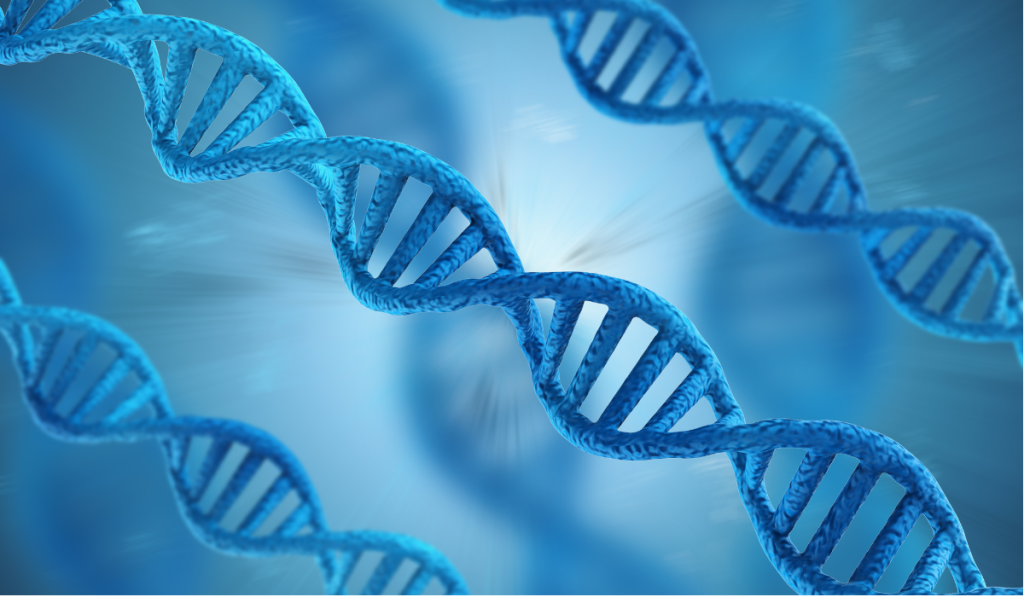
The Hidden Dangers of Weight Loss Medications for Individuals with Eating Disorders
July 8, 2025
Can You Die from Bulimia? Understanding the Life-Threatening Risks of This Eating Disorder
July 22, 2025
For many individuals struggling with bulimia nervosa—or supporting someone who is—one pressing question often arises: Is bulimia genetic? Understanding the origins of this complex eating disorder can help reduce stigma, promote compassion, and guide effective treatment. While genetics may play a role, bulimia is not strictly a genetic disorder. Instead, it’s influenced by a combination of biological, psychological, and environmental factors.
In this blog, we’ll explore the connection between genetics and bulimia, discuss what causes bulimia, and explain how it is diagnosed.
Is Bulimia Genetic?
Research into the genetics of eating disorders has grown significantly over the past decade. Studies suggest that genetics can contribute to the likelihood of developing bulimia nervosa, but no single “bulimia gene” has been identified. Instead, scientists believe that a person’s genetic makeup may increase vulnerability to certain traits—like impulsivity, anxiety, or perfectionism—that can heighten the risk of developing an eating disorder.
Family studies show that bulimia tends to run in families, indicating a potential hereditary component. Twin studies in particular have found that if one twin has bulimia, the other twin is more likely to develop it as well, especially in identical twins who share the same DNA. This suggests that genetics may account for up to 50-60% of the risk of developing an eating disorder, including bulimia.
However, it’s important to note that genetics alone does not cause bulimia. Instead, genes may create a predisposition, and environmental or psychological triggers often activate that risk.
What Causes Bulimia?
If bulimia isn’t solely genetic, then what causes bulimia? The answer is multifaceted and varies from person to person. While there’s no single cause, several contributing factors are commonly involved:
1. Psychological Factors
Bulimia often co-occurs with mental health conditions like depression, anxiety, or obsessive-compulsive disorder (OCD). Individuals with low self-esteem, poor body image, or difficulty managing emotions may be more vulnerable. The binge-purge cycle may develop as a way to cope with overwhelming feelings, shame, or trauma.
2. Sociocultural Influences
Living in a society that places a high value on thinness can contribute to the development of bulimia. Social media, unrealistic beauty standards, peer pressure, and cultural ideals can reinforce the idea that self-worth is tied to appearance. This external pressure can trigger disordered eating behaviors, particularly among young people.
3. Biological Factors
Some researchers believe that abnormalities in brain chemicals—especially serotonin, which affects mood and appetite—could influence eating disorders. Hormonal imbalances or irregularities in the brain’s reward system may also play a role.
4. Family Dynamics
Families that emphasize weight or appearance, or where conflict, neglect, or trauma exist, can increase risk. Additionally, having a family member who diets frequently or has disordered eating behaviors can normalize harmful patterns.
5. Trauma and Life Stressors
Significant life changes, abuse, or traumatic experiences can trigger bulimia. In some cases, the behavior begins as an attempt to gain control over one’s life or body when other areas feel chaotic or uncertain.
How Is Bulimia Diagnosed?
If you or a loved one is concerned about the possibility of bulimia, it’s crucial to understand how healthcare professionals diagnose bulimia.
The diagnostic process typically begins with a thorough medical and psychological evaluation. A mental health provider, such as a psychologist or psychiatrist, will use criteria outlined in the Diagnostic and Statistical Manual of Mental Disorders (DSM-5) to assess for bulimia nervosa. According to the DSM-5, the following signs and symptoms are used in diagnosis:
- Recurrent episodes of binge eating (consuming a large amount of food in a short period while feeling out of control).
- Recurrent inappropriate compensatory behaviors to prevent weight gain, such as vomiting, excessive exercise, fasting, or misuse of laxatives.
- These behaviors occur at least once a week for a period of three months.
- The individual’s self-worth is overly influenced by body shape and weight.
Medical professionals may also run tests to assess physical health, as bulimia can lead to serious medical complications like electrolyte imbalances, gastrointestinal issues, and heart problems.
Early diagnosis is crucial for successful treatment. If you suspect bulimia in yourself or someone you care about, seeking professional help is the first step toward recovery.
Moving Toward Healing
Although the question “is bulimia genetic?” doesn’t have a simple yes or no answer, understanding the risk factors—both inherited and environmental—can be empowering. Genetics may make someone more susceptible, but bulimia is not an inevitable result of one’s DNA.
Effective treatment for bulimia often includes a combination of therapy, nutritional counseling, medical monitoring, and sometimes medication. Cognitive behavioral therapy (CBT) is particularly effective in helping individuals recognize and change disordered eating patterns. Family-based therapy, group support, and trauma-informed care may also be helpful.
Get Help Today
Bulimia is a serious but treatable condition that develops through a mix of genetic, psychological, and social influences. While research shows that genetics can increase risk, bulimia is not purely hereditary. Understanding what causes bulimia and how bulimia is diagnosed can help those struggling seek the support they need.
If you or someone you love is dealing with bulimia, know that recovery is possible. With the proper treatment and support, individuals can break the cycle of bingeing and purging and build a healthier, more hopeful future.
_________________________________________________________________________________
Looking for treatment for an eating disorder, anxiety, depression, trauma, or postpartum mood disorder?
Evolve Counseling Services is a specialized team of Licensed Therapists providing treatment in Paoli.



